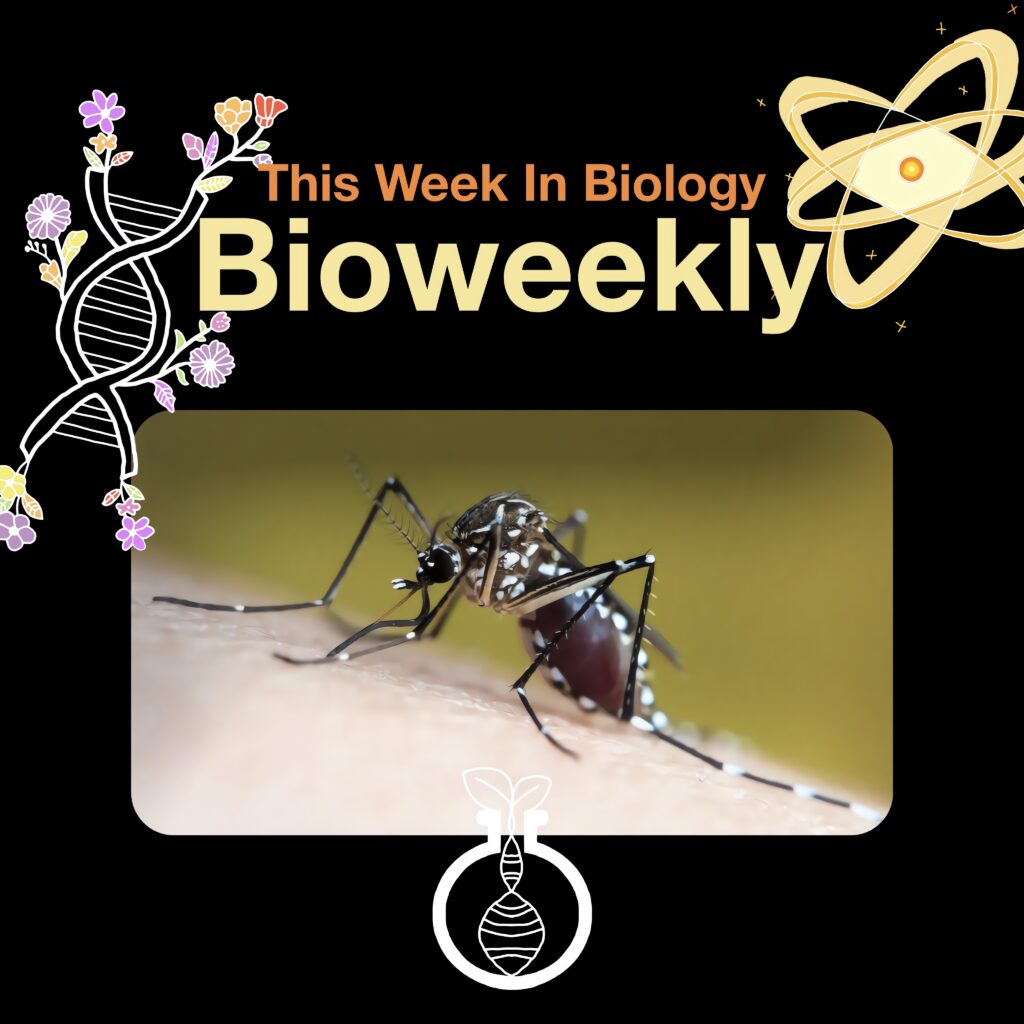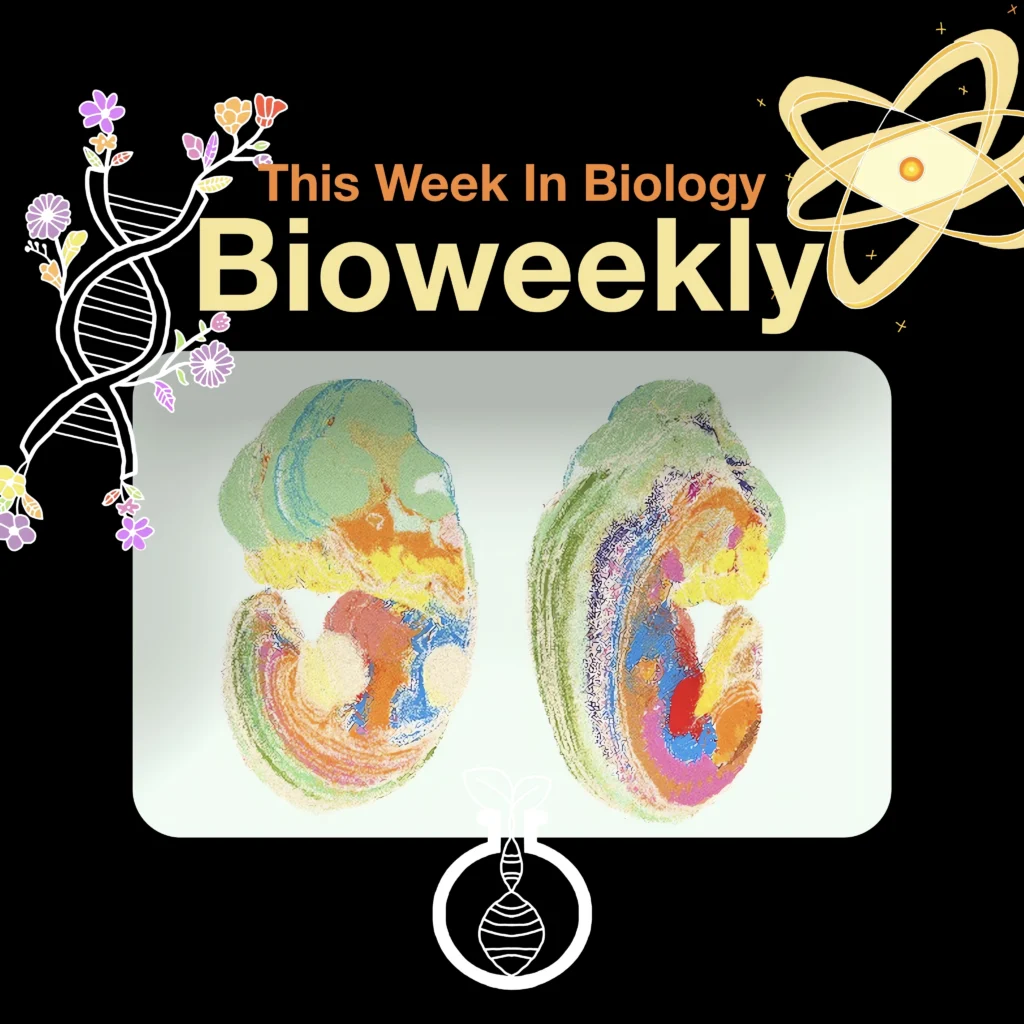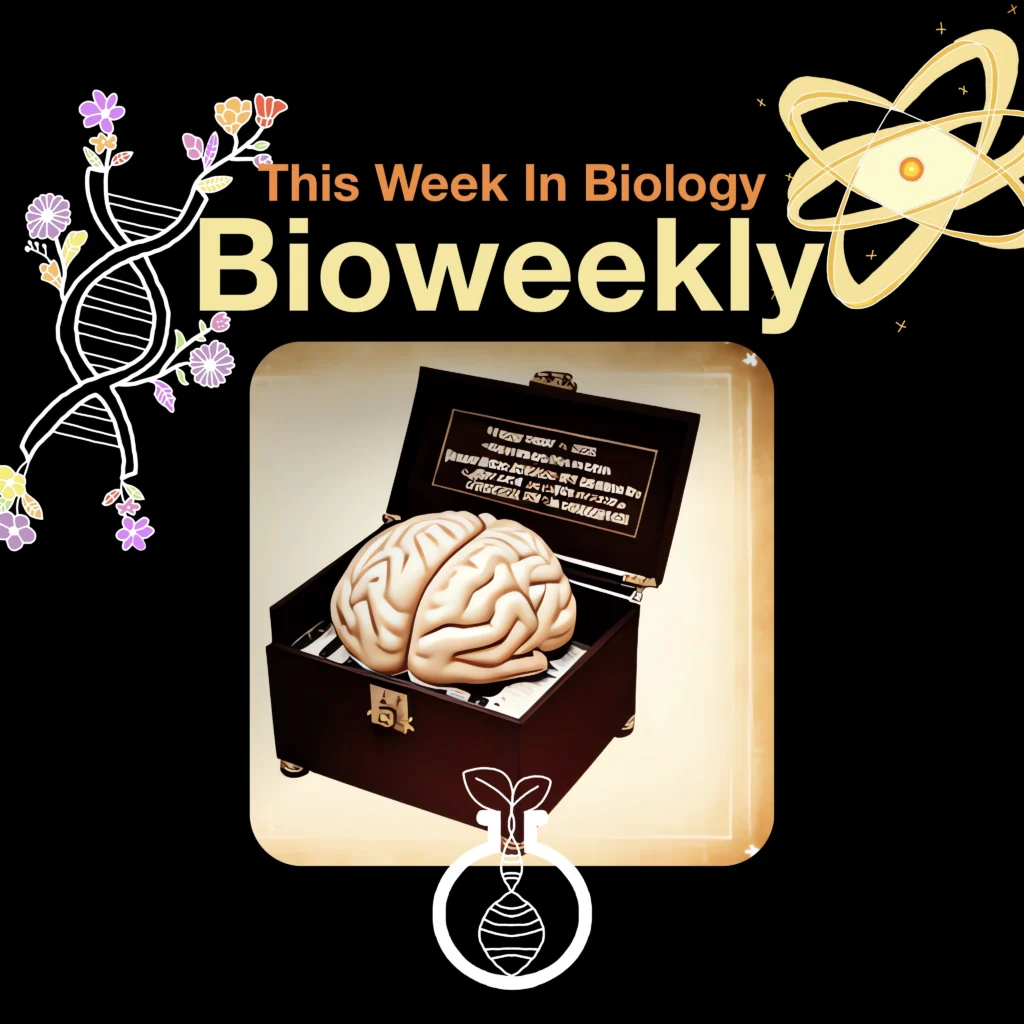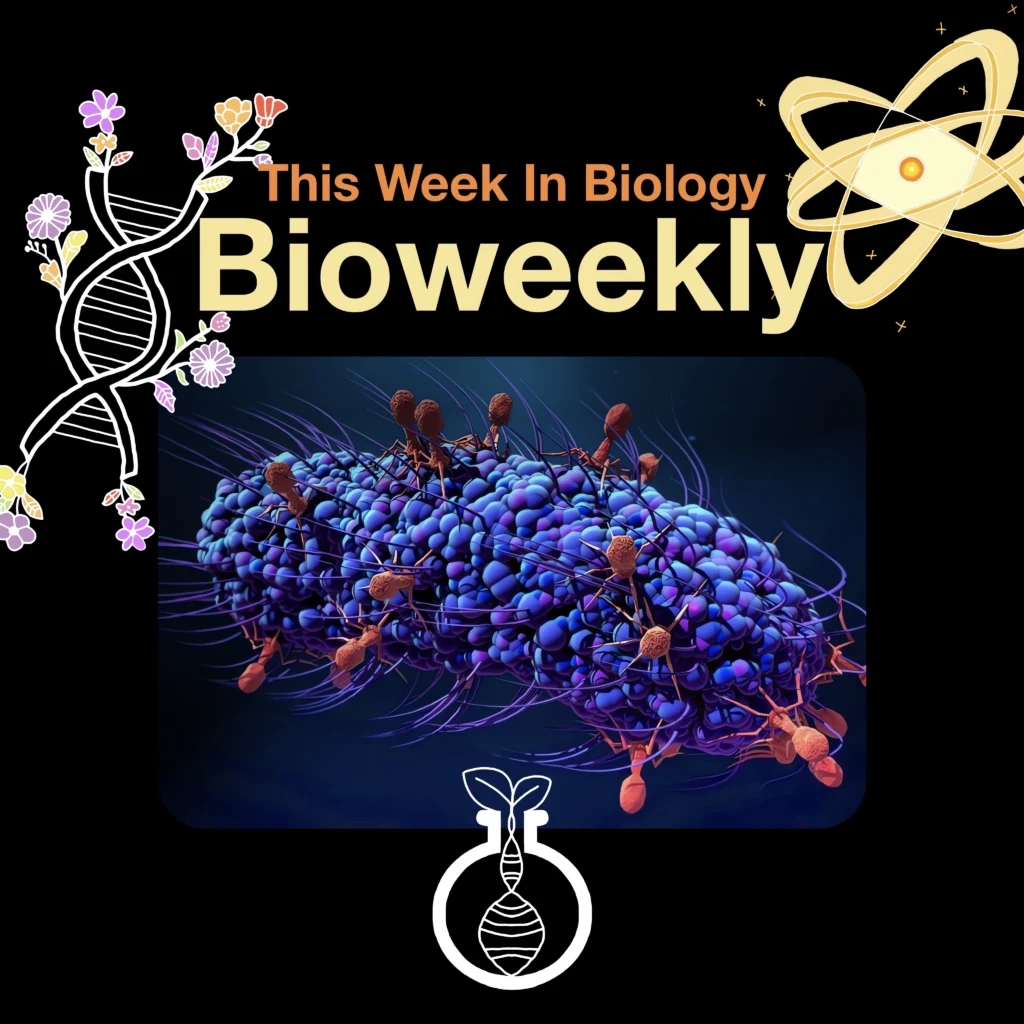We’re thrilled to have you here! Each week, we bring you the latest and most fascinating stories from the world of biology, uncovering the science that shapes our lives and the planet we call home. This week, we’re exploring some incredible stories: an AI ‘brain clock’ revealing what accelerates brain aging, the alarming rise in mosquito-borne diseases fueled by extreme weather, and a groundbreaking discovery about DNA methylation sensors. Dive in, explore, and let’s journey together through the wonders of biology. Happy reading! 🌍🔬
You can find all of the sources in this article right below each headline
Climate Change and Mosquitoes: A Growing Threat!
As extreme heat and rainfall intensify due to climate change, so does the rise in mosquito-borne diseases like dengue, West Nile, and even malaria. Recent storms in the northeastern U.S. and scorching heat in Texas have created the perfect breeding grounds for mosquitoes. These pesky insects may be small, but they carry deadly diseases, and the risk is rising globally. In the Americas alone, dengue cases have shattered records, with over 10 million reported this year.


The warming planet is fueling the spread of these diseases, and experts warn it’s only going to get worse. To protect yourself, stay vigilant: use repellents, wear protective clothing, and eliminate standing water where mosquitoes breed. As the climate shifts, staying safe from mosquito bites is more crucial than ever!
You can find the full article from here
How Fast Is Your Brain Aging? This AI ‘Brain Clock’ Knows!
A groundbreaking AI tool called the ‘brain clock‘ is revealing surprising insights into how quickly our brains age—and the results might shock you. According to recent research, factors like air pollution, socio-economic inequality, and even gender play a huge role in accelerating brain aging. The study, which analyzed data from 15 countries, found that people living in more unequal societies, especially in Latin America, tend to have older brains than their chronological age suggests.


The study also discovered that women in countries with high gender inequality experience faster brain aging than men. This AI-driven research highlights the urgent need for global efforts to address socio-economic disparities if we want to protect brain health. As science dives deeper into personalized medicine, understanding these brain-age gaps could be key to tackling diseases like dementia worldwide. It’s not just about how long you live—it’s about where and how.
You can find the full article from here
Scientists Discover a New Sensor for DNA Methylation
Scientists have uncovered a new sensor for DNA methylation—CDCA7—that plays a crucial role in gene regulation and disease prevention. Previously, it was believed that only UHRF1 detected hemimethylation, a key process in DNA methylation. But now, researchers have found that CDCA7 also acts as a sensor, especially in dense chromatin regions. This discovery sheds light on how mutations in CDCA7 lead to diseases like ICF syndrome and opens the door to new therapies that could combat genetic disorders, cancer, and even aging.


You can find the full article from here
Thank you for diving into this week’s news with us. We hope you enjoyed uncovering these fascinating updates as much as we did. Be sure to return next week for more exciting discoveries from the world of science. Until then, stay curious and keep exploring!


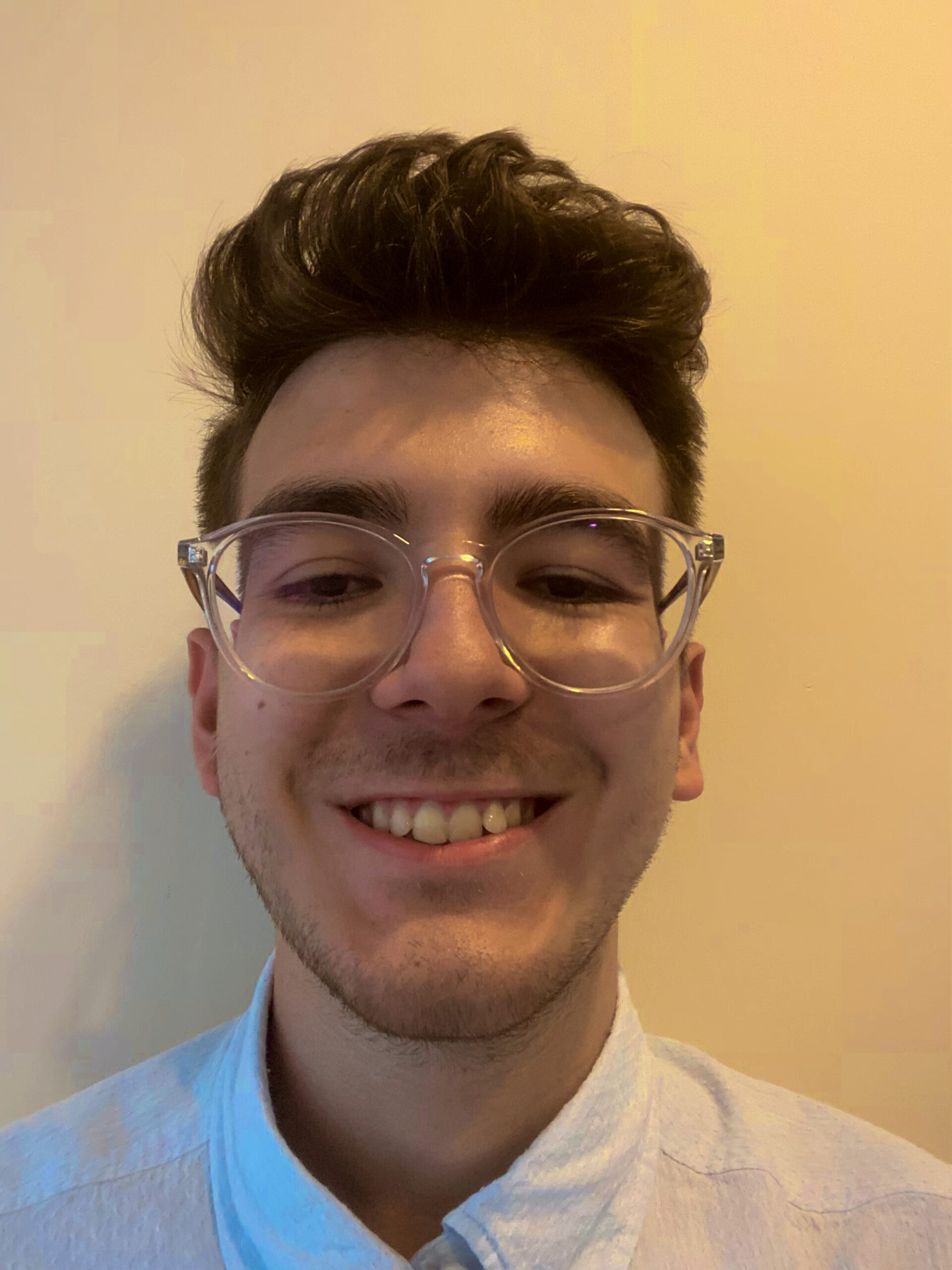

My name is Ali Emre Cabadak, a dedicated biology enthusiast currently pursuing my studies at Marmara University, where I am majoring in Bioengineering. As a passionate advocate for scientific discovery and innovation, I am the founder of Biologyto. My goal is to bring the wonders of biology closer to everyone and inspire a new generation of thinkers and innovators. Through Biologyto, I aim to write scientific articles that delve into the fascinating world of biology, sharing insights and discoveries that inspire curiosity and innovation.

